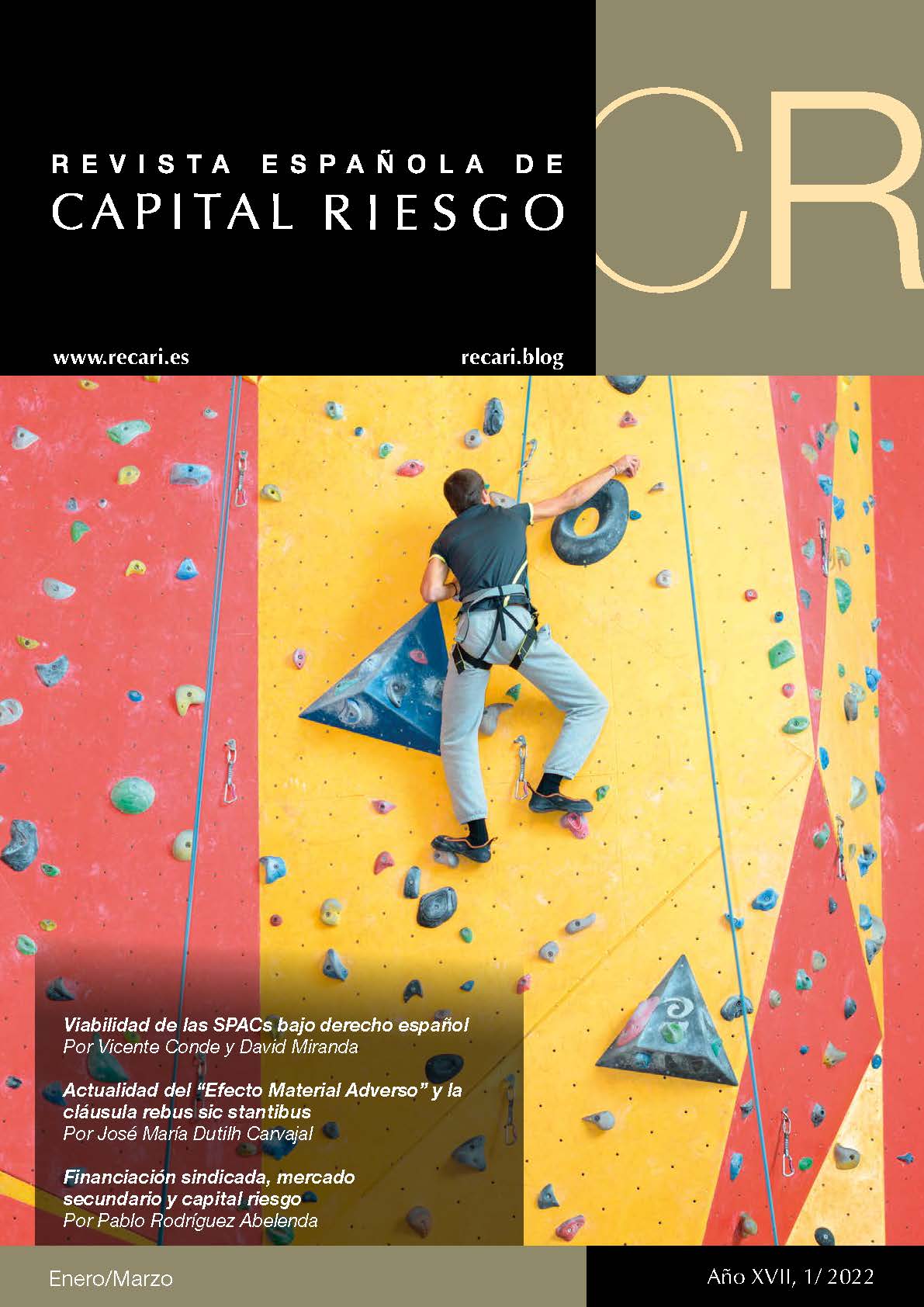Nº 1 / 2022 - (enero-marzo)
(Update on the state of “Material Adverse Change” and rebus sic stantibus clause)
Abstract:
In the negotiation or undertaking of Venture Capital and Private Equity transactions, a
negative evolution of growth expectations, of liquidating investments, of access to the
capital market or of finding investors, an unexpected negative event that substantially
alters the bases of the transaction intended by the parties has a negative, direct impact at the time it occurs unexpectedly.
The legal system provides for extinguishing remedies that allow for the “breach” of
contractual obligations, thereby exempting the parties from the obligation to pay damages, such as: (i) material impossibility of fulfilling the obligation, (ii) unforeseen circumstances, and (iii) force majeure.
In the absence of a regulation, and in response to several very deep economic crises, case law has developed the so-called “rebus sic stantibus” clause (similar to the “material adverse change” clause in the Anglo-Saxon world) as a remedy that does not extinguish, except in very exceptional cases, but rather for renegotiation, modification and adjustment of contracts.
This paper addresses the definition of the elements and requirements that must be present in order to successfully invoke this clause before our Courts and Tribunals, or
to configure it correctly in the appropriate contractual documents corresponding to
Venture Capital and Private Equity operations. It represents the most recent and relevant cases to facilitate a better understanding of its importance and usefulness and explains how, fortunately, its application is becoming more flexible and spreading through the Courts and Tribunals, leaving behind the restrictive and exceptional use that this important resource has had when modifying and amending contracts under certain circumstances.
Keywords: Material adverse change. Rebus sic stantibus. Excessive hardship. Hardship. Unpredictable circumstances. Contractual inequality. Pacta sunt servanda.

DIRECCIÓN REVISTA ESPAÑOLA DE CAPITAL RIESGO
Catedrático de Derecho Mercantil
Universidad de Valencia
DIRECCIÓN BOLETÍN DE ACTUALIDAD DEL MERCADO ESPAÑOL DE CAPITAL RIESGO
Instituto de Capital Riesgo (INCARI)

